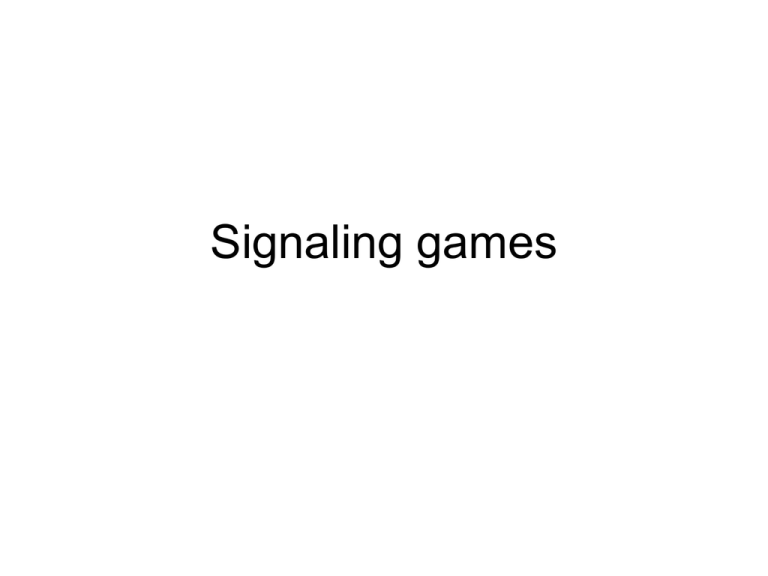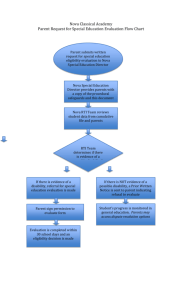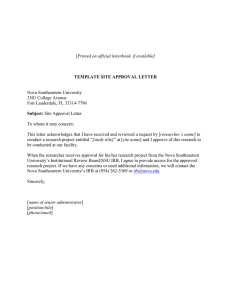Signaling games
advertisement

Signaling games • consider two firms – Oldstar ( old , set in the market) – Nova (new) • if fight happens ,oldstar can beat weak nova but not the strong, the winner has the market to itself. • for oldstar 3 ,for nova 4 and cost of fighting is -2 • payoff matrix fight refrain strong 2,-2 4,0 weak -2,1 0,3 equilibrium without signaling • let ‘w’ be probability that nova is weak • in absence of any signals from nova, the payoff function for fighting is (w)1+(1-w)(-2) >0 w > 2/3 so oldstar fights if it has a prior information that nova is weak signaling • nova can give information by – display – don’t display • strong nova fight refrain challen 2,-2 ge 4,0 don't 0,3 challen ge 0,3 • weak nova , c is the cost for displaying fight refrain challen -2-c,1 ge and display 2-c,0 challen -2,1 ge but don't display 2,0 • so if w <2/3 , then oldstar retreats if it sees the display. • so for weak nova , if c <2 then it should challenge and display, since oldstar retreats – pooling equilibrium how does oldstar react • Oldstar draws conclusion whether or not nova displays according to Bays rule displ no ay displ ay stron 1-w 0 g wea k wp sum of col 1-w w(1- w p) sum 1w(1of w+w p) row p semi - separation • so Old stars payoff from fighting conditional on oberving a display is 1(wp/(1-w+wp)) + (-2)(1-w)/(1-w+wp) = [wp – 2(1-w)]/(1-w+wp) • nova chooses p to keep oldstar perfectly indifferent p = 2(1-w)/w Mixed strategy • Old stars strategy of fighting q , weak nova’s expected payoff form challenging a display q(-2-c) + (1-q)(2-c) = 2-c-4q • weak nova’s payoff for not challenging = 0 • q = (2-c)/4






